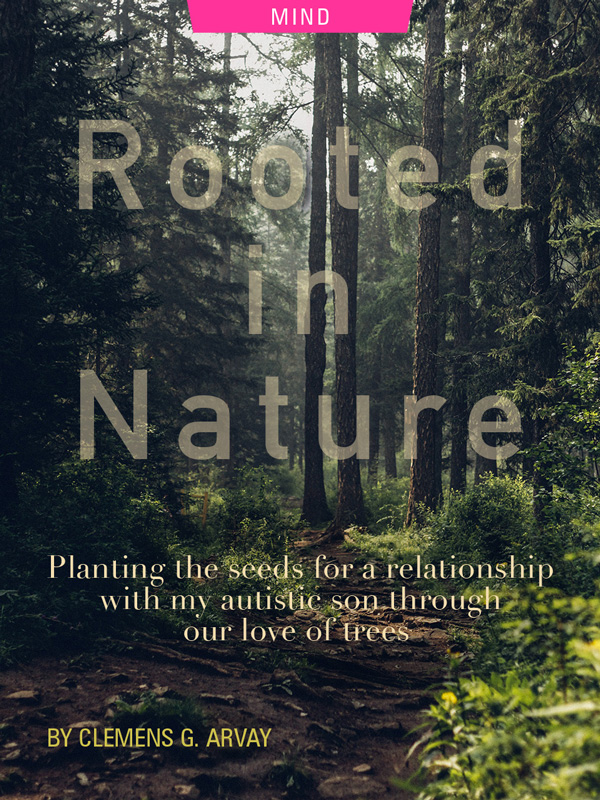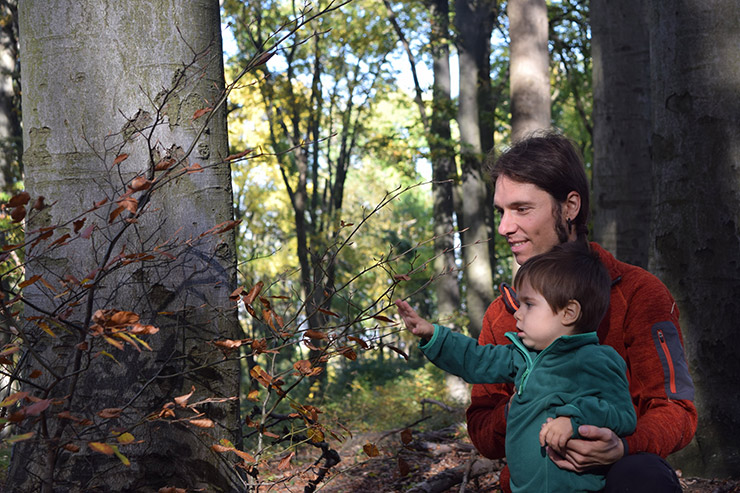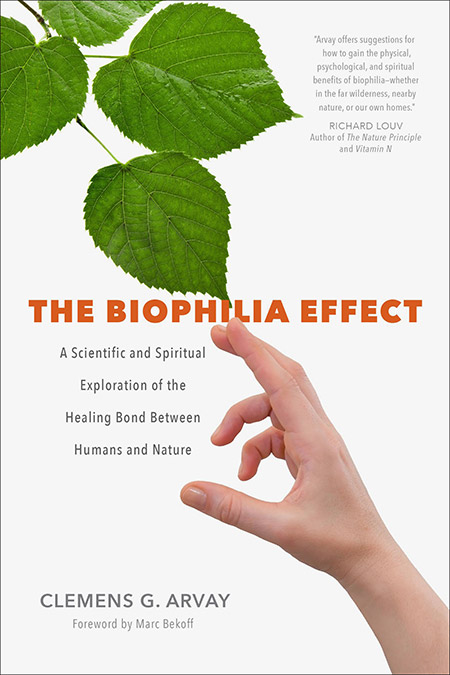
How a lifelong lover of trees found a new connection with his autistic son amidst the sensations and the secret language of the forest
—
I grew up at the edge of a forest with oak trees, beeches, and pine trees. I spent my whole childhood and youth there. But it was an urban forest at the edge of the city of Graz in Austria. We lived on the fourth floor of a modern multi-story building. At the front of our house we could see the skyline of Graz. At the backside the forest extended to the countryside and up onto the nearest mountain.
I was born an urban “biophiliac” — a person with a love of nature.
The ecosystem of our home forest was me and my friends’ playground when we were young. We climbed trees and played hide-and-seek. We built cottages and tree houses with wood. We played in the mud. Sometimes we stayed in the woods so long that we would lose track of time and have to navigate our way home through the ominous pitch black forest night.
Later, when I was a teenager, the forest helped me cope with social conflicts. It was my secure space, surrounded and guarded by trees and animals. The creatures of the forest didn´t judge or pressure me. In nature I could simply be me. The forest gave me an opportunity to retreat from social conflicts and everyday life. When I was sad or suffered lovesickness, I sat down at my secret place in the woods and it always helped me feel better.
Today I am the father of a three year old boy named Jonas, and the therapeutic aspects of the forest already play an important role in his life. Jonas is autistic and has always been satisfied with his inner world, where he disappears. It’s challenging to communicate with him or motivate him to learn new things and explore life outside the inner workings of his mind.
Of all the doctors Jonas’s mother and I have consulted, the forest has been the best therapeutic source of them all.
The diverse natural attractions of the forest are able to permeate Jonas´s world and perception. It’s clear the biophilia effect has made his spirit come alive in the forest. He loves the birdsong, but he especially loves the trees. He is in awe of their overhanging crowns and wants to touch every leaf that he can reach. The healing effects of the forest help to train his connection to the world and activate his sense of exploration.

For a long time Jonas didn´t want to touch anything new and was afraid of unfamiliar sensations. But he allowed himself to come closer to trees. Step by step I motivated him to touch and explore the surfaces of different species of tree trunks. Some are rough, others are smooth. Some are deeply crenated, others are overgrown by soft moss or dry plats.
By the time he learned to accept those new and unfamiliar sensations his sensory disorder had disappeared.
In the forest Jonas has also learned to look into other people´s eyes. Wordlessly, as autists do, he often points to a plant or another organic object and wants to know what it is. But I only provide him with an answer when he looks into my eyes, inducing a social and communicative process between us. Just as plants and trees communicate with each other using molecules and biological signals, Jonas and I are finally able to communicate, by accessing the therapeutic properties of the natural world. Sometimes, amidst his forest wanderings, he will even stop and look up at me, as if he knows that we share a secret language only the trees can understand.
The trees are teaching us both lessons. To Jonas, they are wise and accepting figures, quietly encouraging him to come alive and learn; to me, they are like stalwart friends, who bear witness and provide the medicine that helps me plants the seeds for a relationship with my son.
View the trailer for The Biophilia Effect:
You may also enjoy reading Forest Bathing: How Immersing in Nature Can Help You Reconnect by Tess DiNapoli
